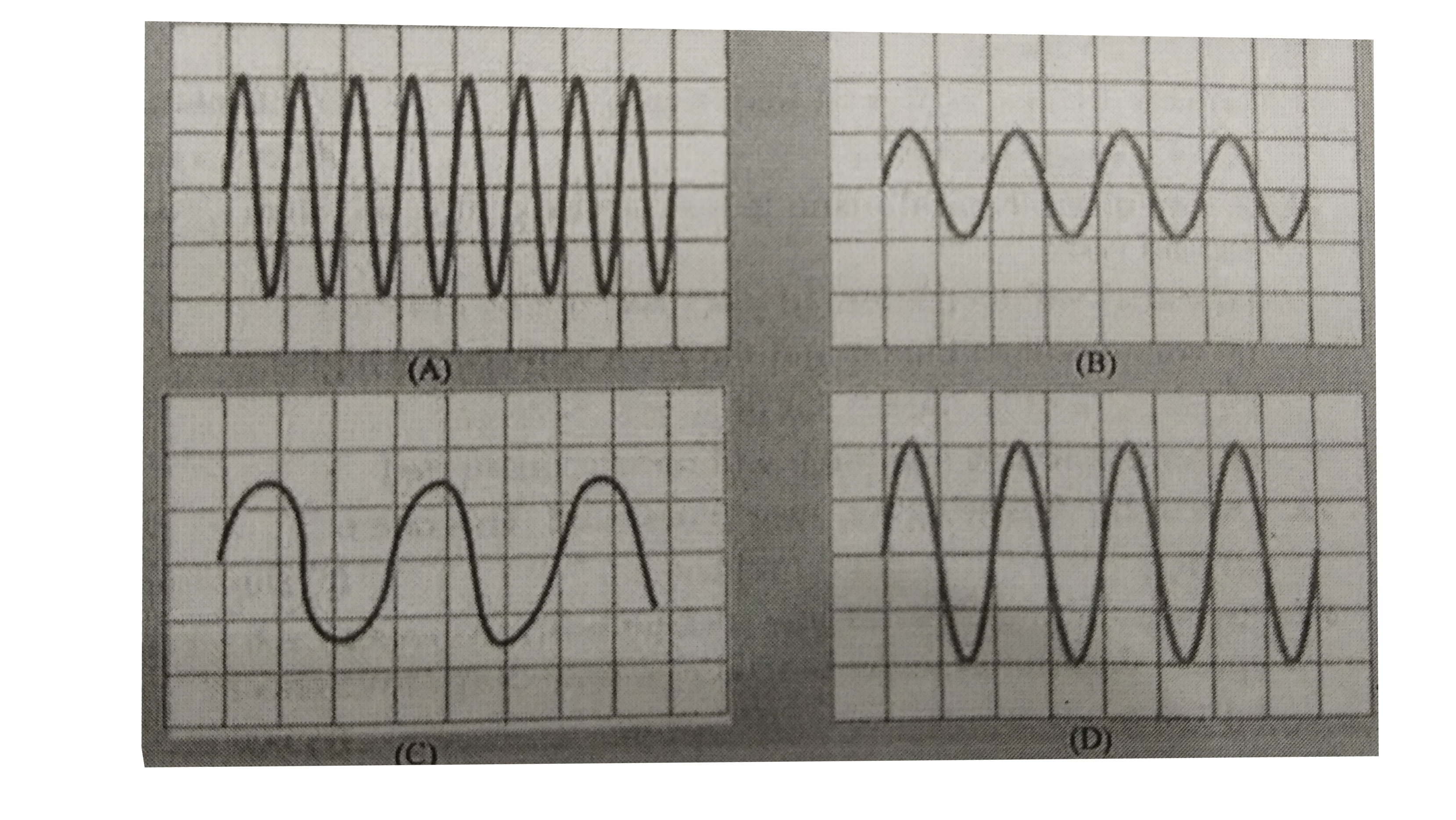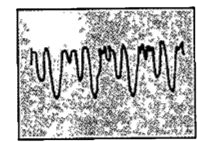Consider the following sound waves marked A,B, C and D:
(a) Which two waves represent sounds of the same loudness but different pitch?
(b) Which two waves represent sounds of the same frequency but different loudness?
(c) State whether all these sound waves have been produced by the same vibrating body or different vibrating bodies?
(d) Which vibrating body/bodies could have generated the sound waves shown here?

The correct Answer is:(a) A and D (b) B and D (c) Same vibrating body (d) Tuning forks
Step by step video, text & image solution for Consider the following sound waves marked A,B, C and D: (a) Which two waves represent sounds of the same loudness but different pitch? (b) Which two waves represent sounds of the same frequency but different loudness? (c) State whether all these sound waves have been produced by the same vibrating body or different vibrating bodies? (d) Which vibrating body/bodies could have generated the sound waves shown here? by Physics experts to help you in doubts & scoring excellent marks in Class 9 exams.
Updated on:21/07/2023Topper's Solved these Questions
- SOUNDBOOK - LAKHMIR SINGH & MANJIT KAURCHAPTER - SOUNDEXERCISE - Multiple Choice Questions
37 Videos
- SOUNDBOOK - LAKHMIR SINGH & MANJIT KAURCHAPTER - SOUNDEXERCISE - NCERT
5 Videos
- SOUNDBOOK - LAKHMIR SINGH & MANJIT KAURCHAPTER - SOUNDEXERCISE - Long Answer Type Questions
13 Videos
- MOTION BOOK - LAKHMIR SINGH & MANJIT KAURCHAPTER - MOTION EXERCISE - NCERT BOOK QUESTIONS AND EXERCISES
3 Videos
- WORK AND ENERGYBOOK - LAKHMIR SINGH & MANJIT KAURCHAPTER - WORK AND ENERGYEXERCISE - Multiple Choice Questions
1 Videos
Similar Questions
Knowledge Check
The velocity of sound produced by a vibrating body varies -
Adirectly as the sq . Root of density of the mediumBinversely as the density of the mediumCdirectly as the sq. root of frequency of the mediumDinversely as the frequency of the mediumUltrasonic waves are those sound waves having frequency
Abetween 20 hertz and 1000 hertzBbetween 1000 hertz and 20000 hertzCmore than 20 kilobertzDless than 20 hertzThe pitch of sound depends on
AamplitudeBfrequencyCnoiseDthe medium of propagation
Does a vibrating body always produce sound?
View SolutionWhich of the following sound waves produces the loudest sound?
View SolutionRepresent graphically by two separate diagrams in each case :
(i) Two sound waves having the same amplitude but different frequencies.
(ii) Two sound waves having the same frequency but different amplitudes.
(iii) Two wound waves having different amplitudes and also different wavelengths.
View SolutionThe characteristic of sound by which we can distinguish between two sounds of the same loudness and pitch is know as:
View SolutionConsider the following statements
(1) Sound waves are ealstic waves
(2) In sound waves ,the vibrations are perpendicular to the direction in which the wave travels.
Which of these statements is /are correct ?
View Solution

